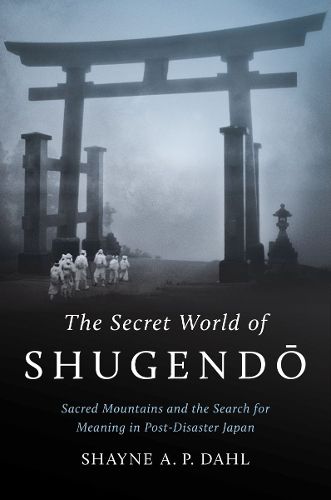Readings Newsletter
Become a Readings Member to make your shopping experience even easier.
Sign in or sign up for free!
You’re not far away from qualifying for FREE standard shipping within Australia
You’ve qualified for FREE standard shipping within Australia
The cart is loading…






In this compelling narrative of discovery set in Japan's remote Dewa Sanzan mountain range, Shayne A. P. Dahl describes Shugendo, a secretive religious tradition that combines aspects of Shinto, Buddhism, and mountain worship. As a participant-observer, Dahl invites readers into the practices of contemporary ascetics who see the sacred mountains as wombs within which cycles of life, death, and rebirth can be harnessed for the sake of personal transformation and existential realization. As Dahl argues, immersion in Shugendo provides ascetics and pilgrims with an escape from capitalist modernity and an avenue for self-reflection in the wake of the earthquake, tsunami, and nuclear disaster near Fukushima in March 2011. Immersing readers in the intimate and hidden dimensions of Shugendo, Dahl sheds light on how practitioners sustain their traditions in the face of modern temptations and tensions within their religious communities. Filled with insight into Shugendo's contribution to Japanese cultural identity, this book offers groundbreaking perspective on the intersections of ecology, disaster, religion, the human condition, and death.
$9.00 standard shipping within Australia
FREE standard shipping within Australia for orders over $100.00
Express & International shipping calculated at checkout
In this compelling narrative of discovery set in Japan's remote Dewa Sanzan mountain range, Shayne A. P. Dahl describes Shugendo, a secretive religious tradition that combines aspects of Shinto, Buddhism, and mountain worship. As a participant-observer, Dahl invites readers into the practices of contemporary ascetics who see the sacred mountains as wombs within which cycles of life, death, and rebirth can be harnessed for the sake of personal transformation and existential realization. As Dahl argues, immersion in Shugendo provides ascetics and pilgrims with an escape from capitalist modernity and an avenue for self-reflection in the wake of the earthquake, tsunami, and nuclear disaster near Fukushima in March 2011. Immersing readers in the intimate and hidden dimensions of Shugendo, Dahl sheds light on how practitioners sustain their traditions in the face of modern temptations and tensions within their religious communities. Filled with insight into Shugendo's contribution to Japanese cultural identity, this book offers groundbreaking perspective on the intersections of ecology, disaster, religion, the human condition, and death.